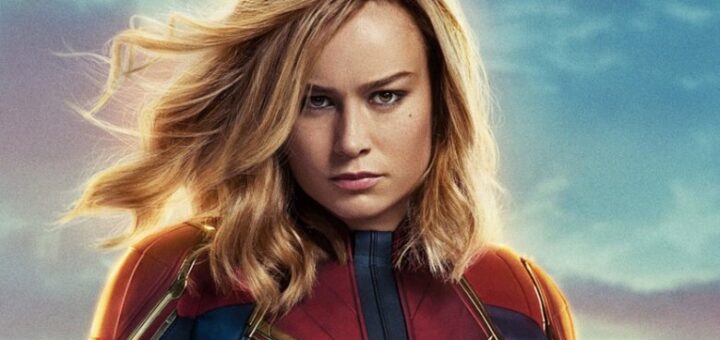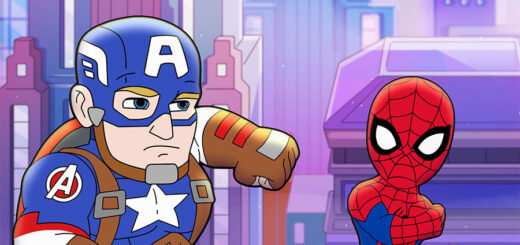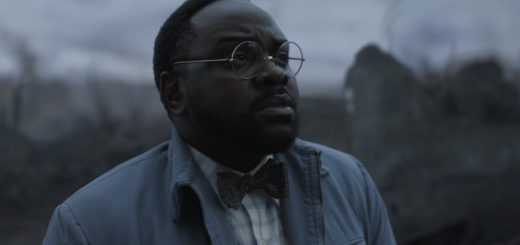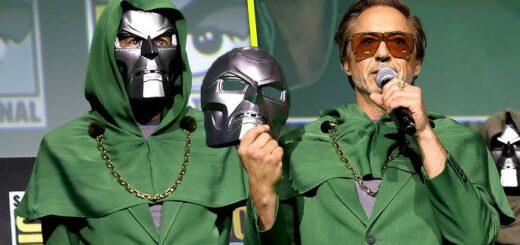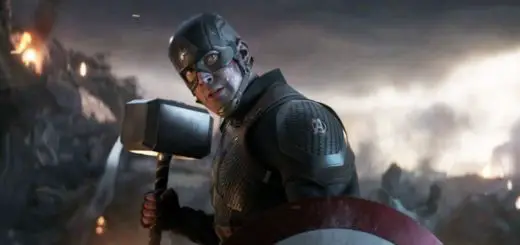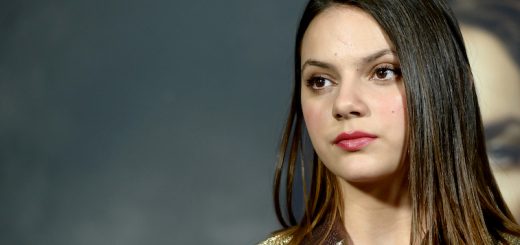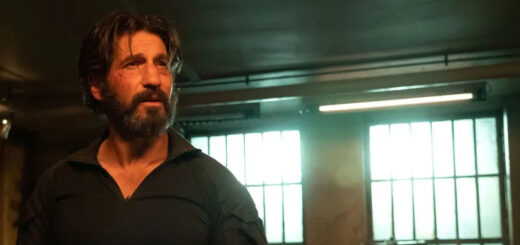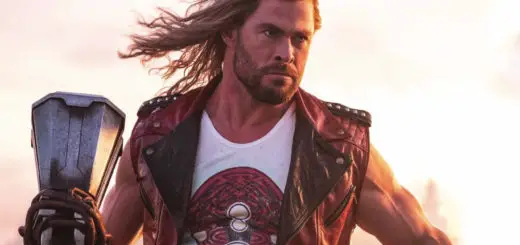MarvelBlog Retro Review: Captain Marvel
In 2011, Captain America: The First Avenger debuted as the fourth film in the MCU (No, I don’t count The Incredible Hulk).
However, in the official MCU timeline, Captain America comes first. What you might not realize is what comes second in the timeline.
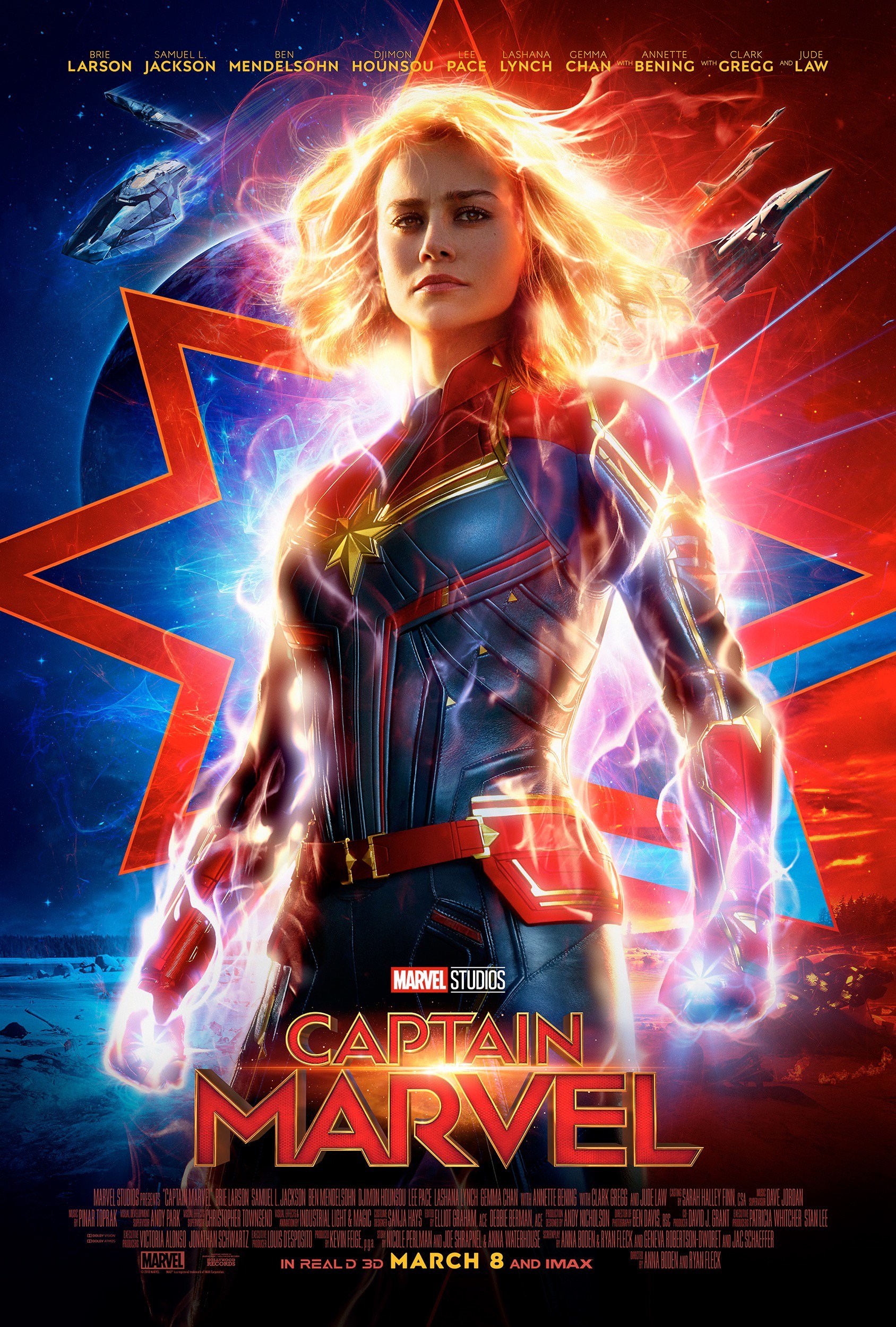
Photo: Marvel
Yes, we fast forward to the 1990s, where the 20th film in the MCU happens before 18 others.
This week, we’re traveling back in time more than 25 years to 1995 to discuss a film that only came out a couple of years ago.
Here’s my retro review of Captain Marvel, the most successful comic book movie ever for a female lead.
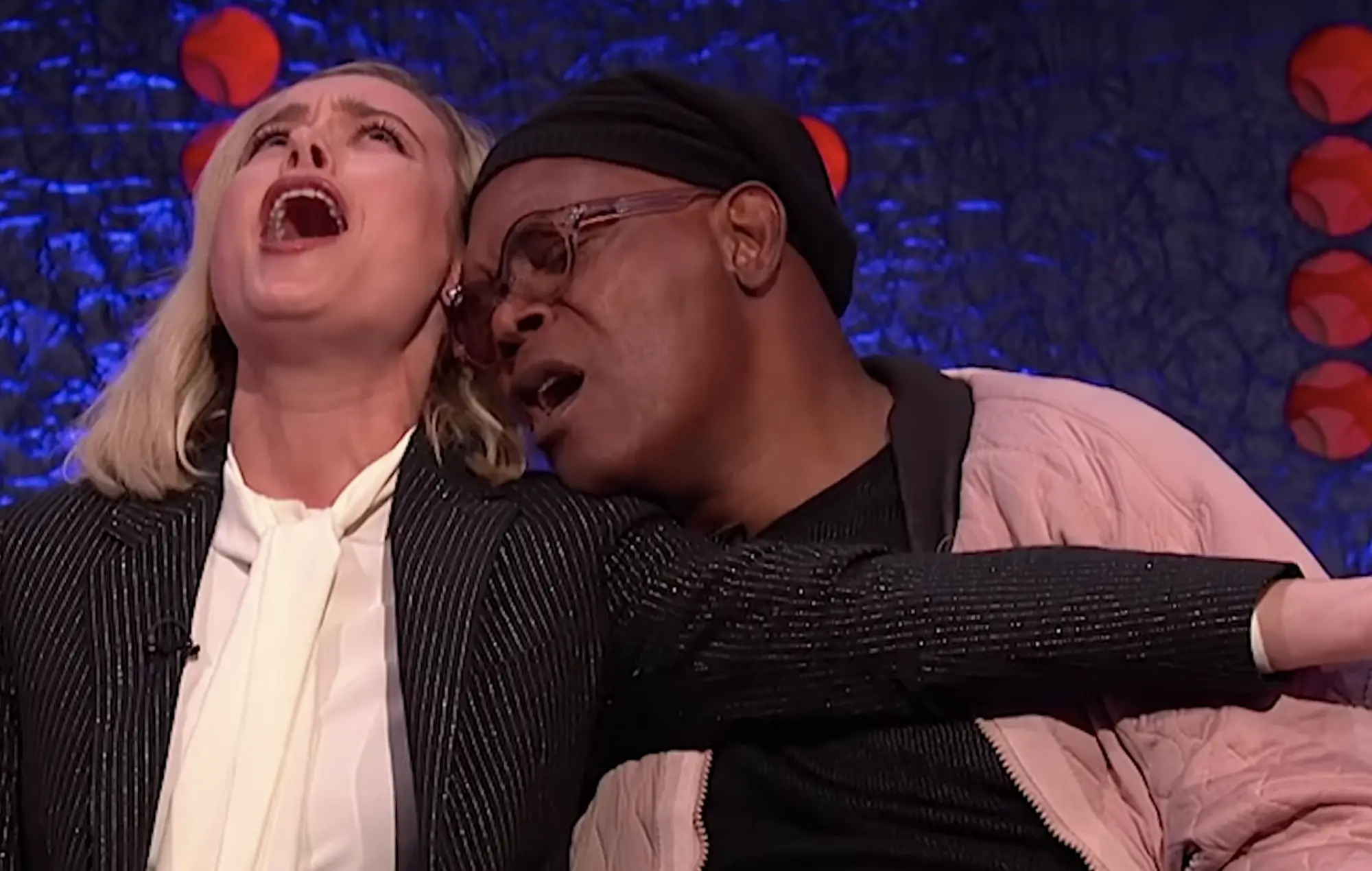
Brie Larson and Samuel L Jackson on ‘The Jonathan Ross Show.’ Photo: NME
A Confession about the Story
I’m a superfan of Scott Pilgrim vs. the World and adore Brie Larson for her brief but impactful appearance of Envy Adams.
I relished Larson’s success in Room and marked out at the news that she would star as Captain Marvel, a character whose comics I own.
Alas, when the movie came out in theaters, I didn’t love it the way that others did.
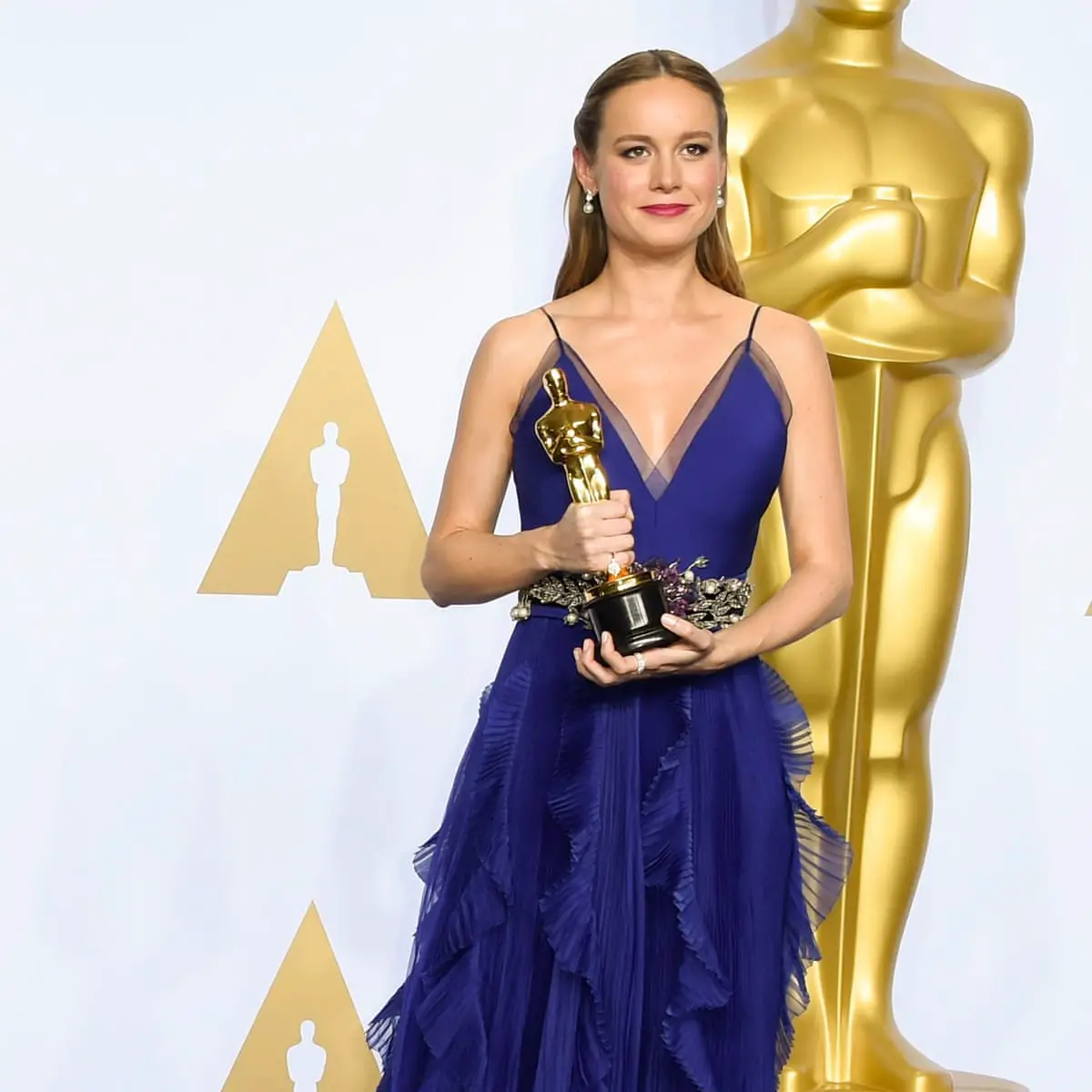
Brie Larson backstage after accepting an Oscar for her performance in Room. Photo: Paul Buck/EPA
Nobody could deny that Captain Marvel turned into an overnight sensation, with astonishing box office ($1.13 billion) and glowing reviews (79 percent fresh on Rotten Tomatoes).
I just found the story a bit muddled and the film overly long. In re-watching this time, I paid attention to whether I’d been excessively critical at the time.
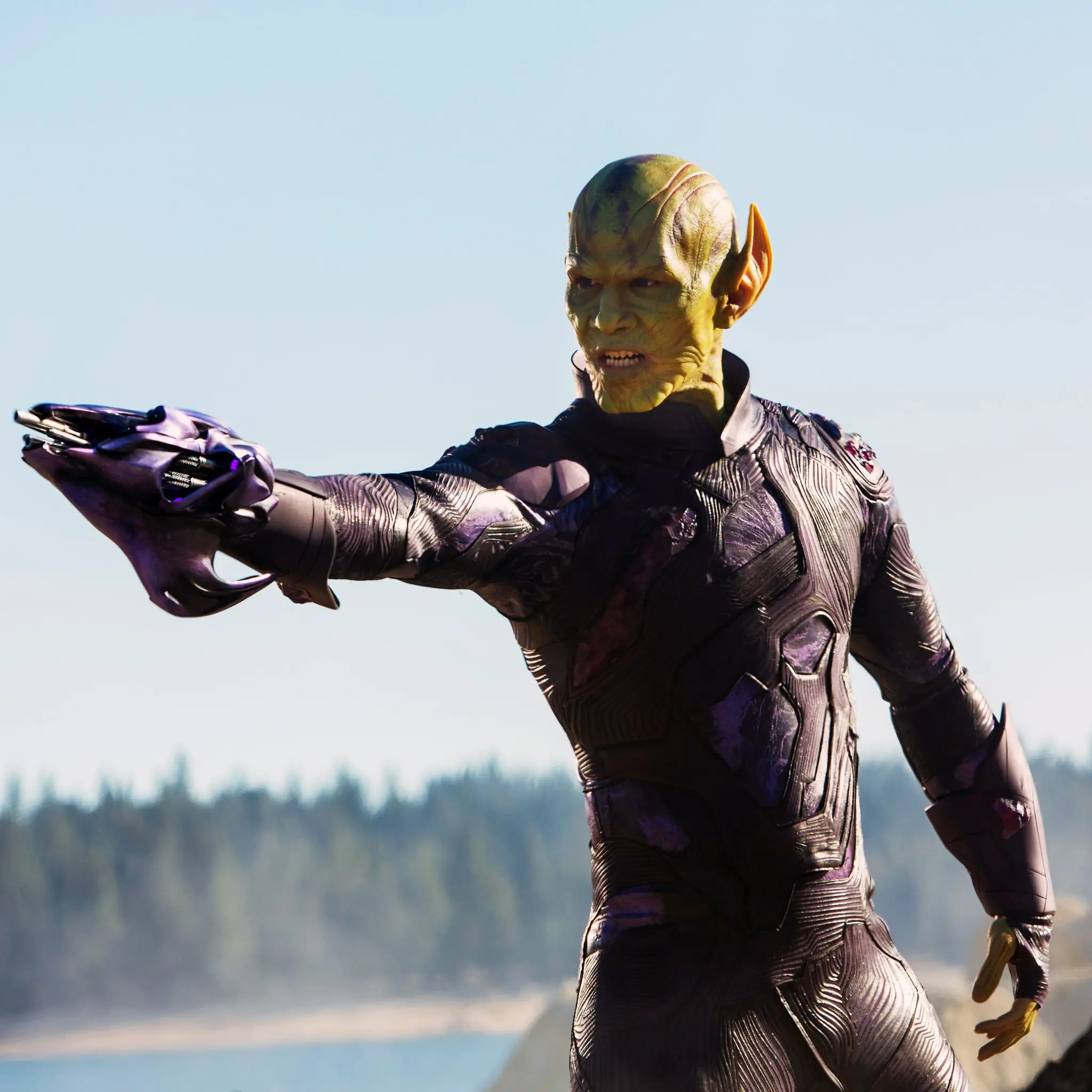
Photo: Everett Collection
As a movie critic for more than 20 years, I must admit that it happens.
Unfortunately, Captain Marvel still doesn’t move me the way that most MCU movies do.
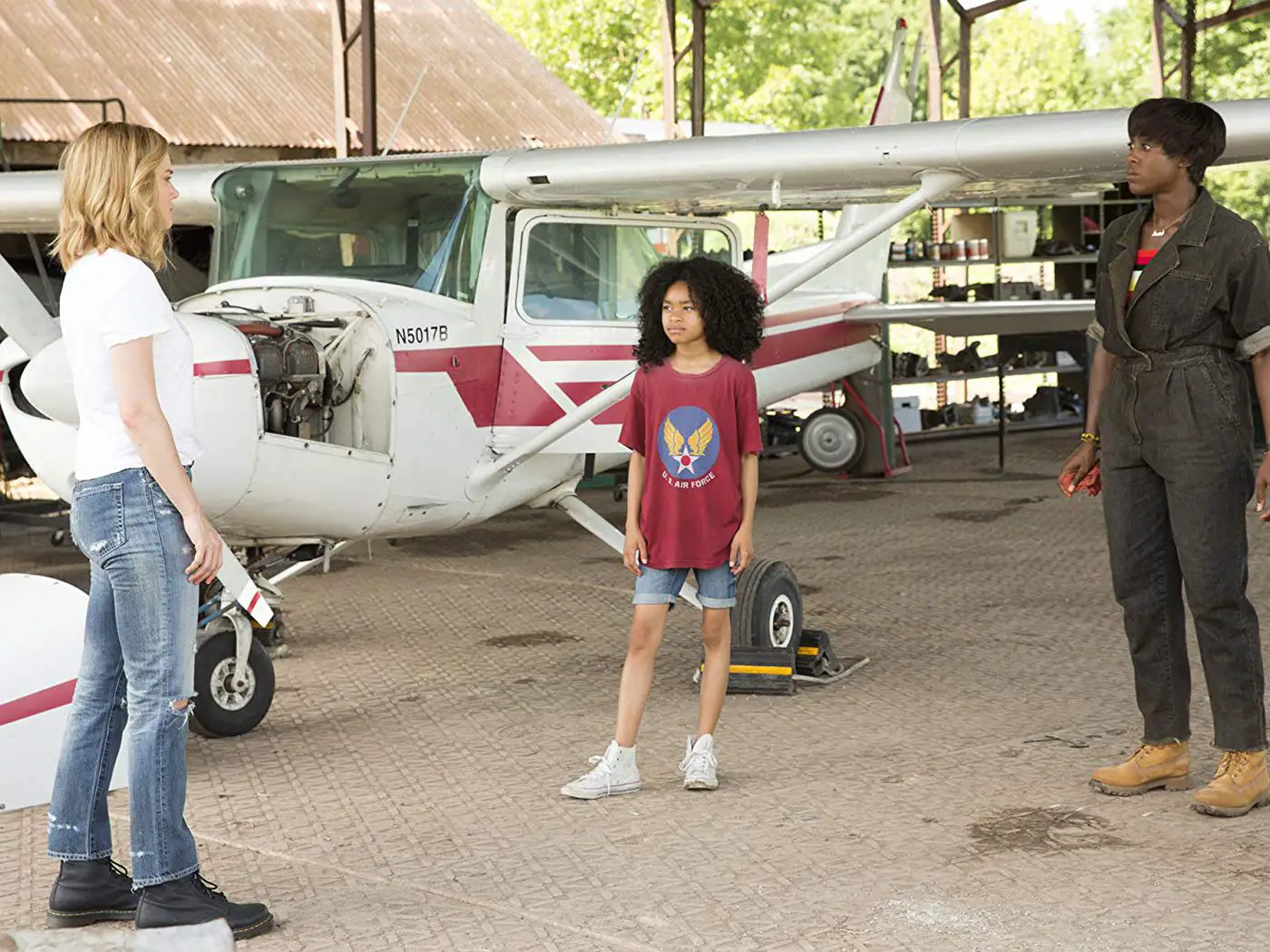
Photo: Vox
Maybe it’s because I’ve never really liked Jude Law (save for The Holiday) or Annette Bening the way that the rest of the world does.
They’re ostensibly the villains of the piece, although we don’t learn that until well into the movie. It’s pretty easy to guess, though.
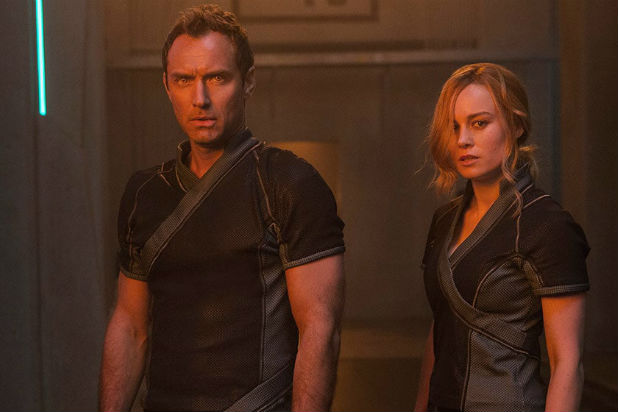
Jude Law as Mar Vell. Photo: Marvel
The warning signs begin when team members of Starforce respond to a situation involving Skrulls,
Starforce represents the technologically advanced Kree, who have warred with the shape-shifting Skrulls for generations.
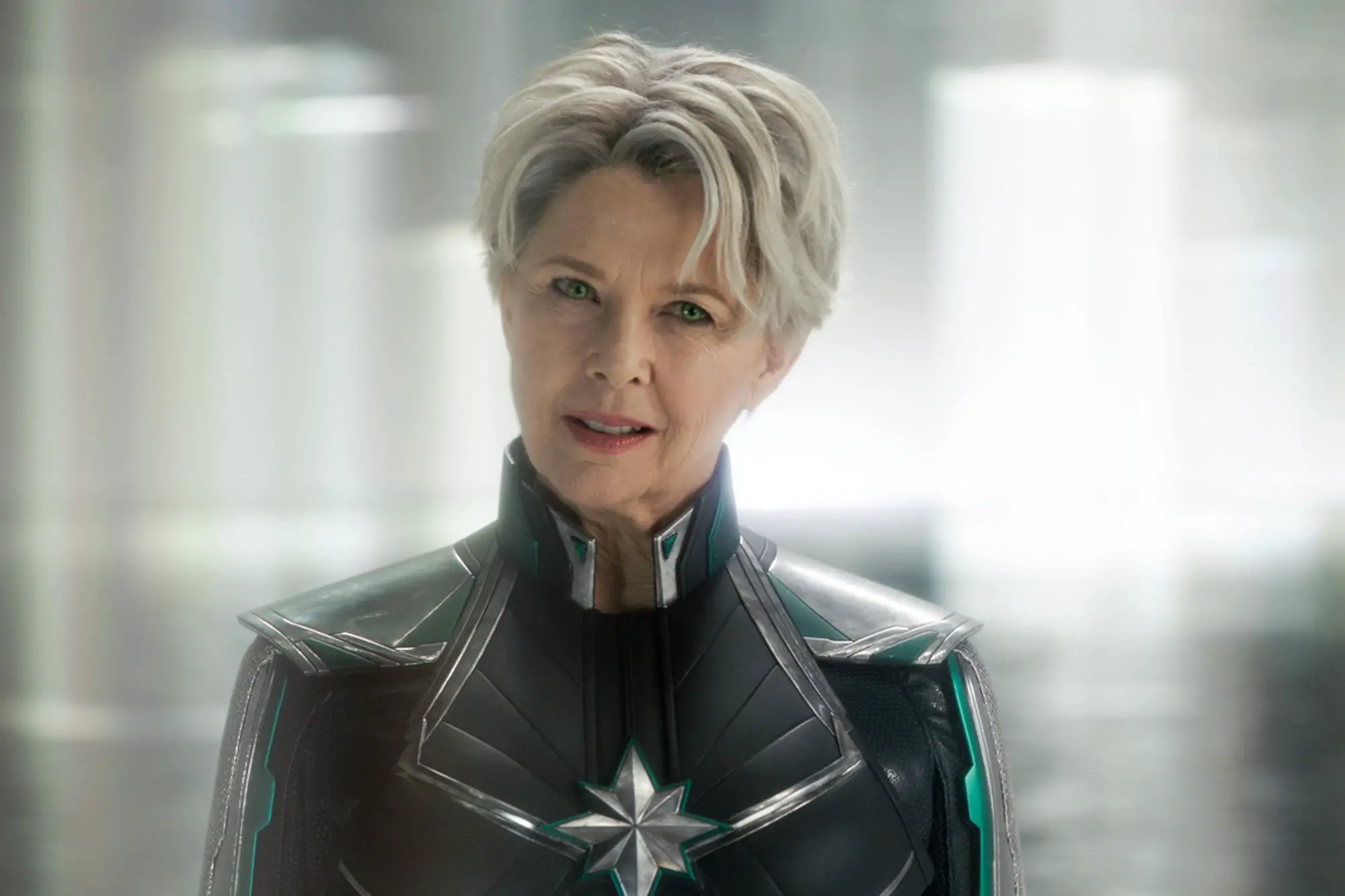
Annette Bening. Photo: Marvel
Somehow, a human woman named Carol Danvers represents Starforce on an alien planet, even as flashbacks verify that she’s from Earth.
The whole thing feels a bit chaotic, straight down to the appearance of a cat named Goose, who proves oddly significant to the story.
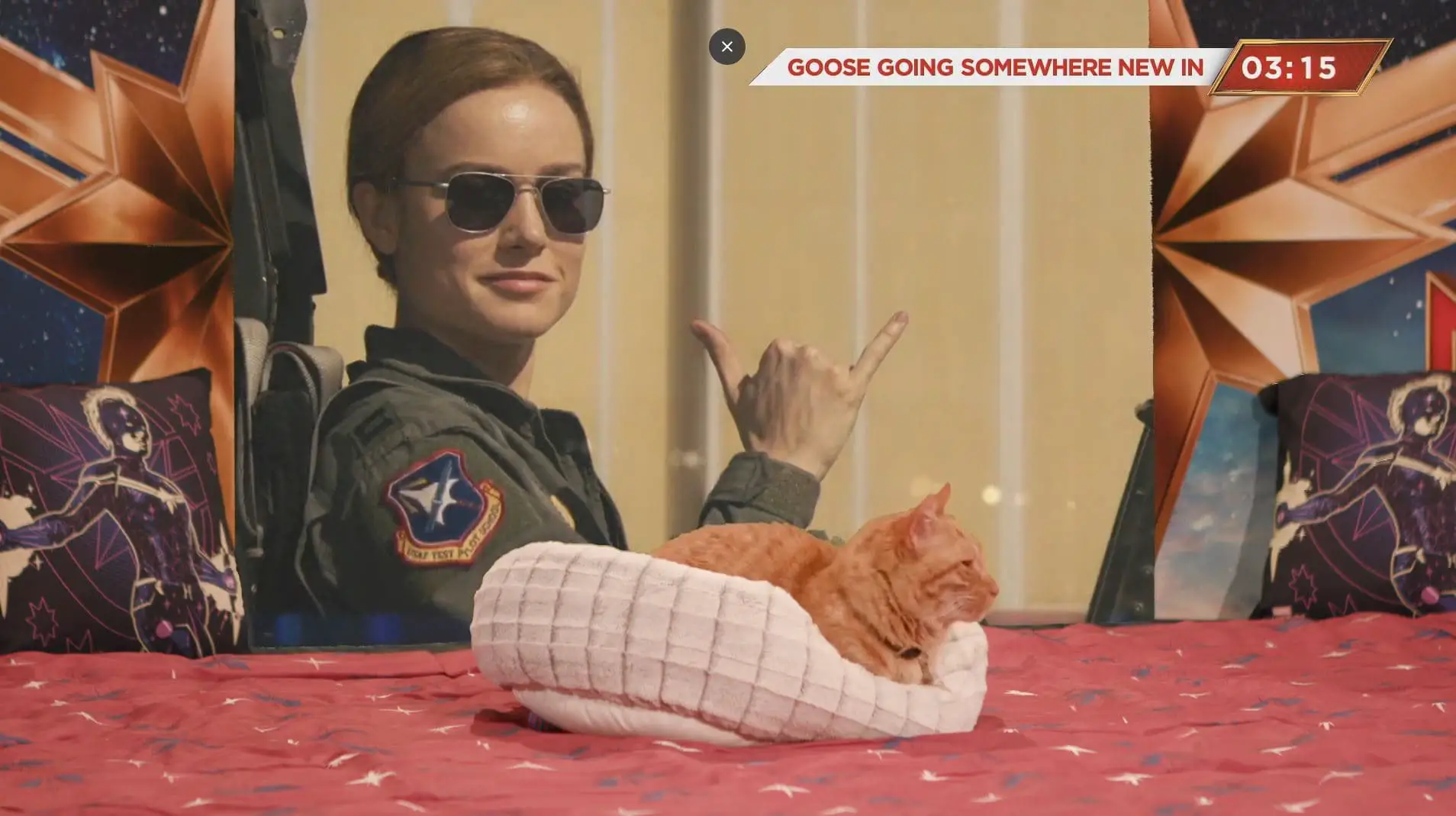
Marvel Studios least problematic actor. Photo: SlashGear
I’ve always felt that this is my problem with Captain Marvel. It overreaches in trying to recount several elements of the character’s comic book history.
The Strength of the Movie
In truth, Captain Marvel doesn’t need a sweeping epic about alien war. Instead, the film works best when it focuses on the core.
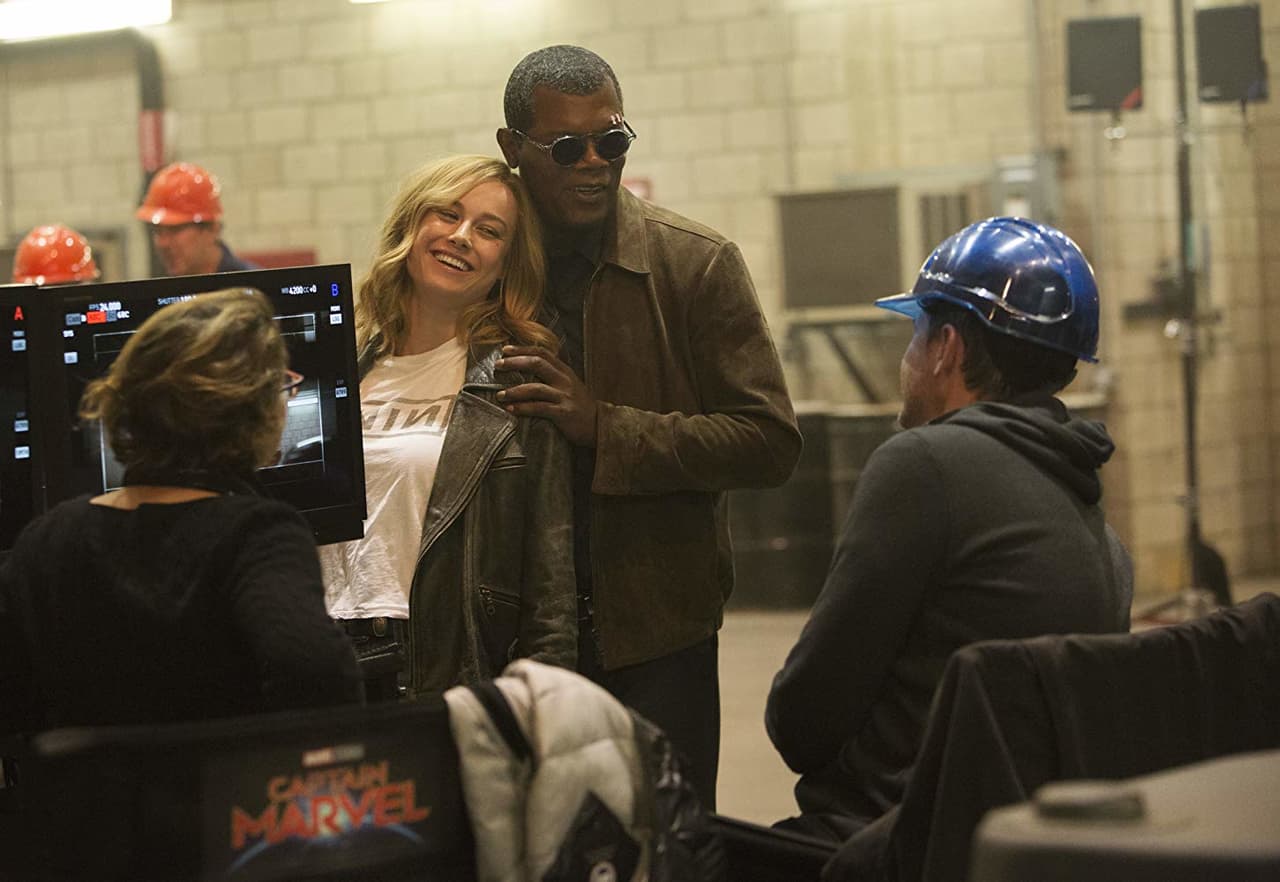
Samuel L. Jackson, Ryan Fleck, Brie Larson, and Anna Boden in Captain Marvel (2019). Photo: Image #6985191 on Favim.com
Captain Marvel is a period piece that mocks the mid-1990s even as it reunites popular MCU characters Nick Fury and Phil Coulson.
Those two and a “cat” provide the comic relief for a film that only needs one thing: Brie Larson as Captain Marvel.
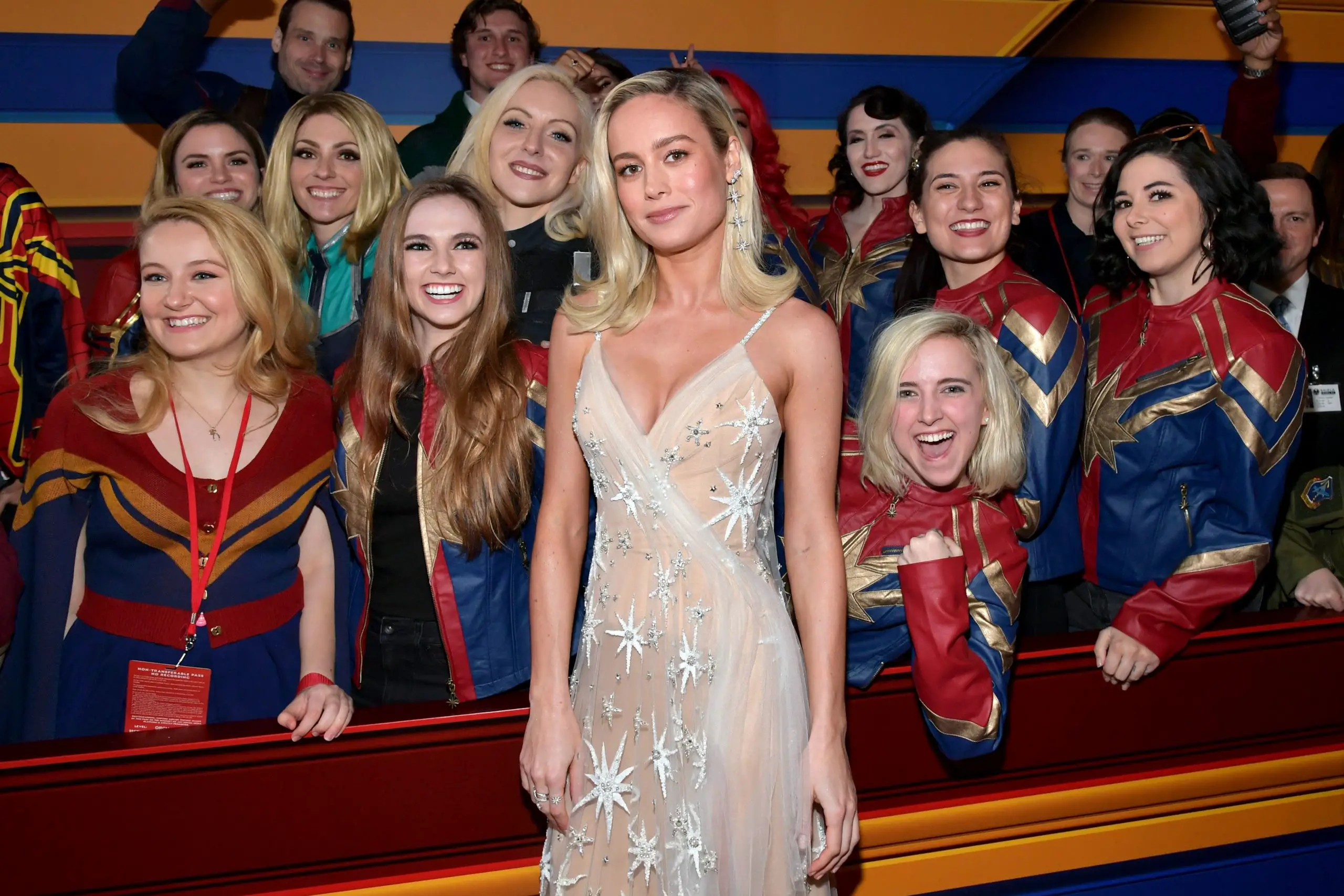
Photo: Amy Sussman/Getty Images
She’s perfect casting as a military woman trying to solve a puzzle about her history.
Along the way, the movie cycles through various Captain Marvel comic book looks from throughout the decades. I find it distracting more than useful.
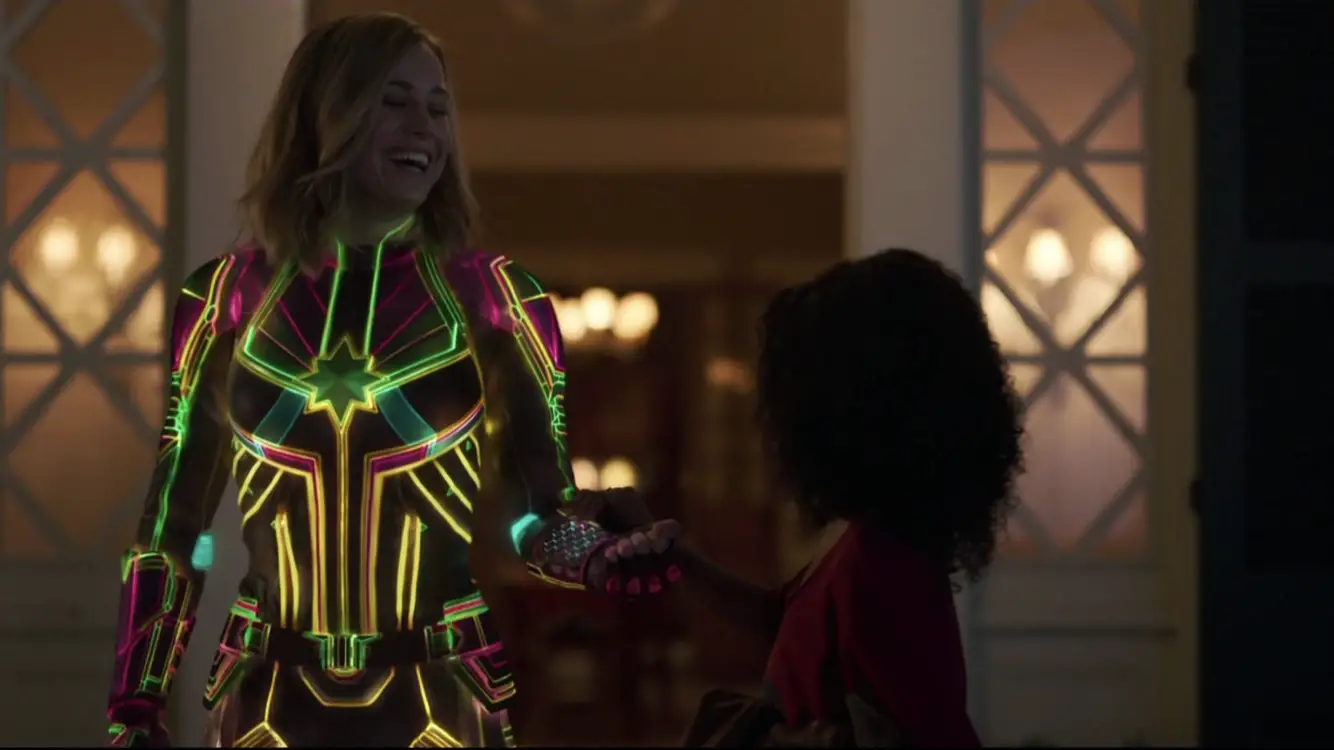
Photo: Marvel
Thankfully, Danvers eventually crashes through the roof of a Blockbuster, thereby signaling her return to her home planet.
The Earth-based scenes are universally terrific, as Captain Marvel’s sort of homecoming embraces its comedy and character development.
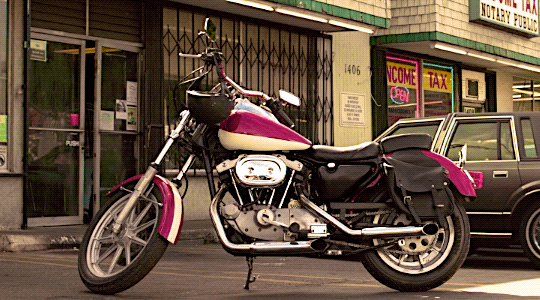
Photo: Marvel Studios
Danvers could obliterate Fury and Coulson with the blink of an eye, making their dismissive male authority figure condescension that much more entertaining.
Directors Anna Boden and Ryan Fleck relish the integration of Skrulls into the story, as they can take the form of anything…including Agent Coulson.
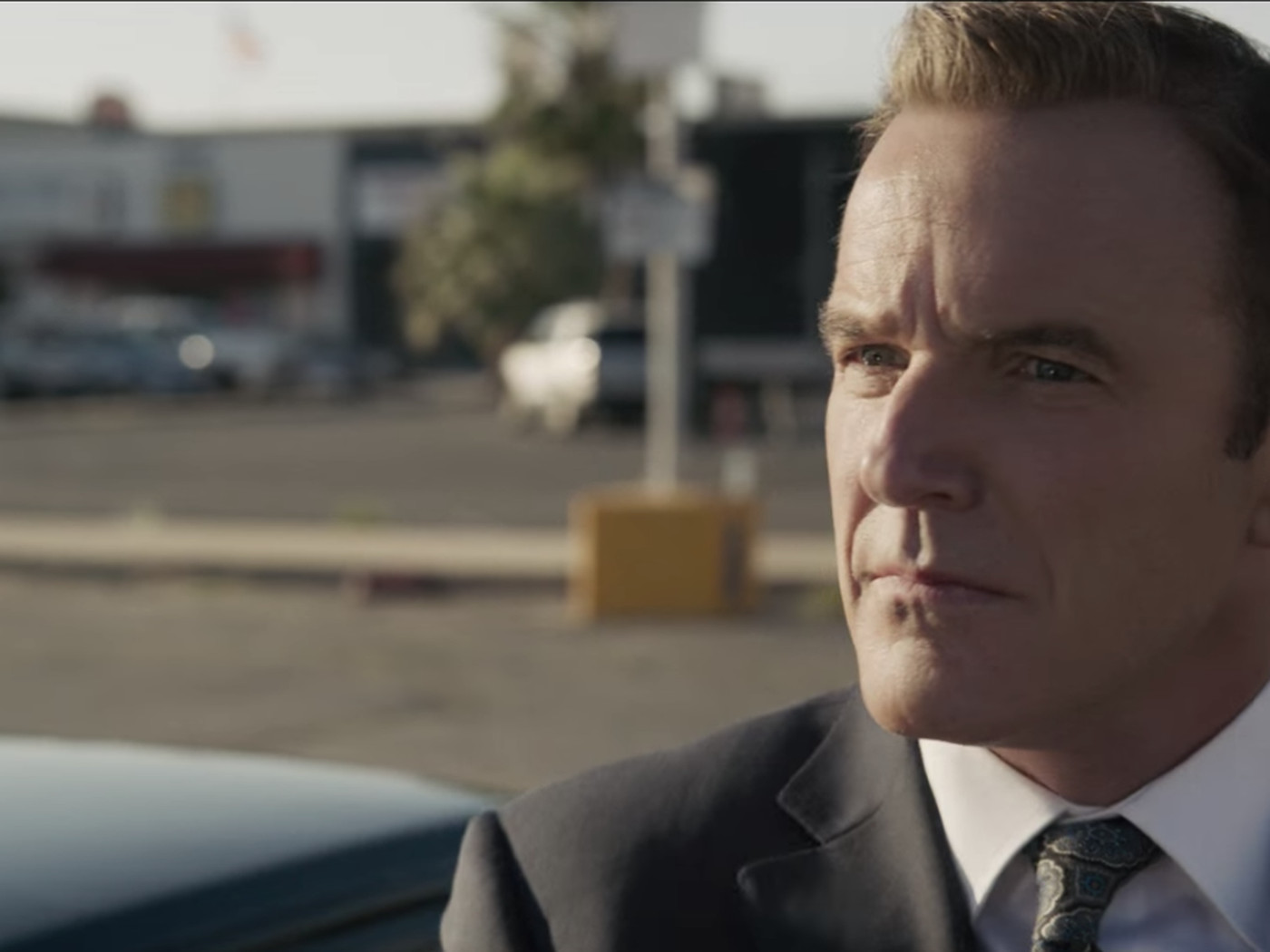
Photo: Marvel
Also, the 1990s co-star in the film as nostalgia plays an integral part. We even get an alien autopsy!
Along the way, Danvers and Fury play within the margins of a buddy comedy for a while, highlighted by Danvers proving that she’s not a Skrull.
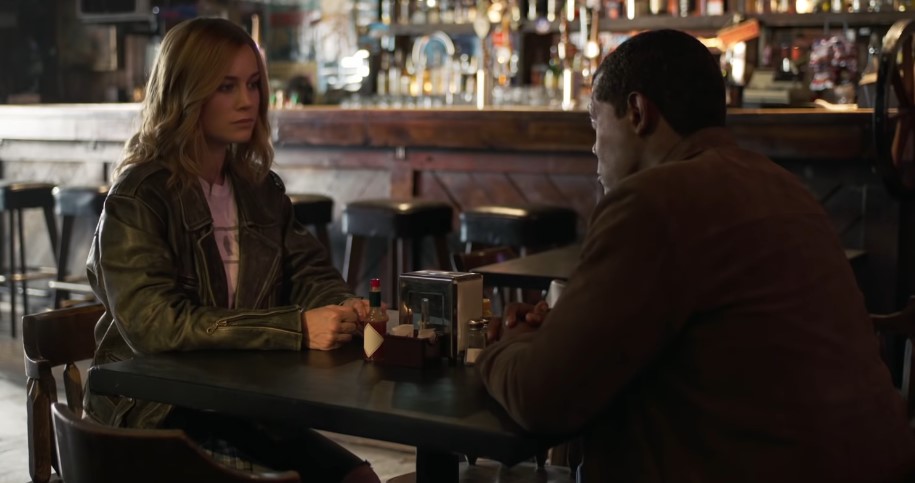
Photo: Marvel Studios
A photon blast through a jukebox does the trick. The film frequently reinforces the fact that Captain Marvel is OP AF.
Remarkably, she’s even stronger during Avengers: Endgame, making her the second-most powerful person in the MCU behind Scarlet Witch.
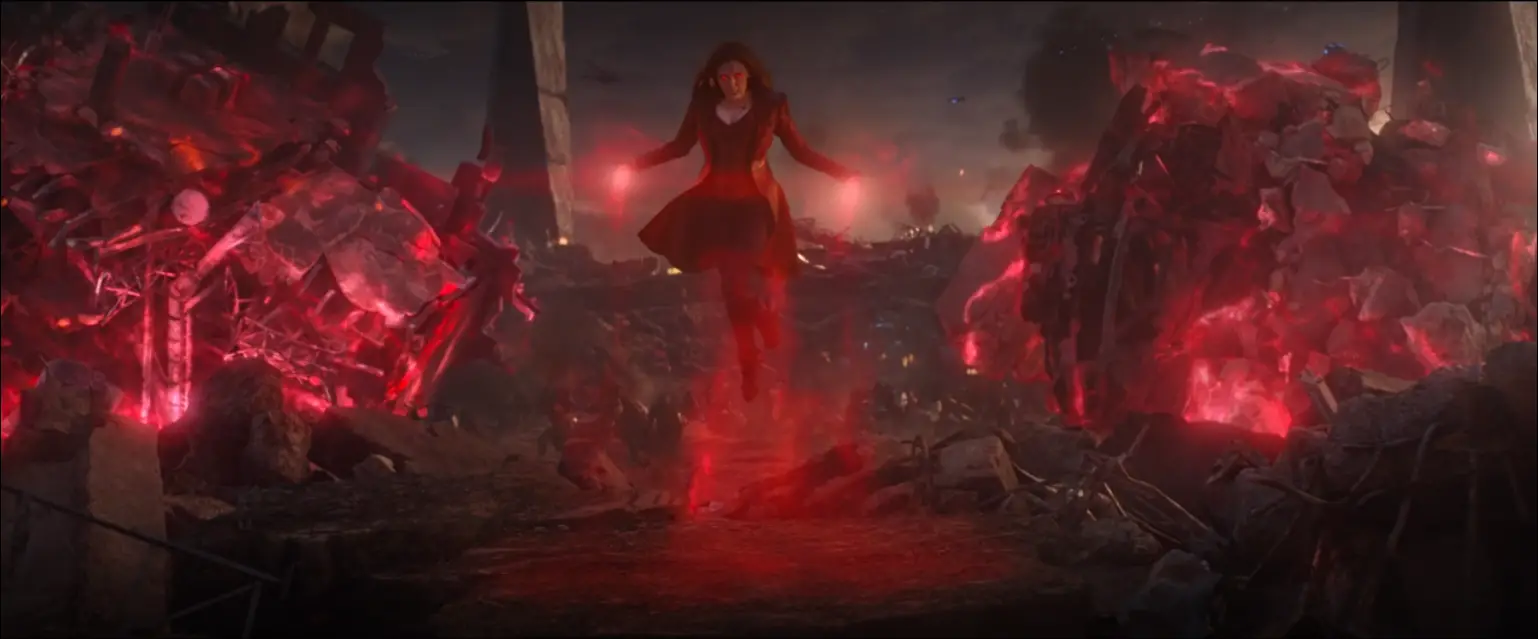
Photo: Marvel Studios
The Real Story
I find Captain Marvel’s script needlessly convoluted. The confusing concoction that has messed up Carol Danvers requires some unpacking.
At some point, Danvers encountered and then SHOT the Tesseract! The fallout from this action imbued her with unprecedented power.
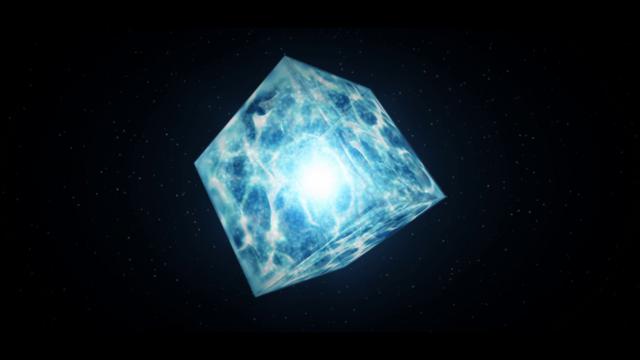
Tesseract. Photo: IGN.com
Yon-Rogg (Law’s character), the leader of the Kree, fused his blood with hers to turn Danvers into a Kree-human hybrid.
This step removed her free will and turned her into a Kree weapon at the behest of the Supreme Intelligence (Bening’s character).
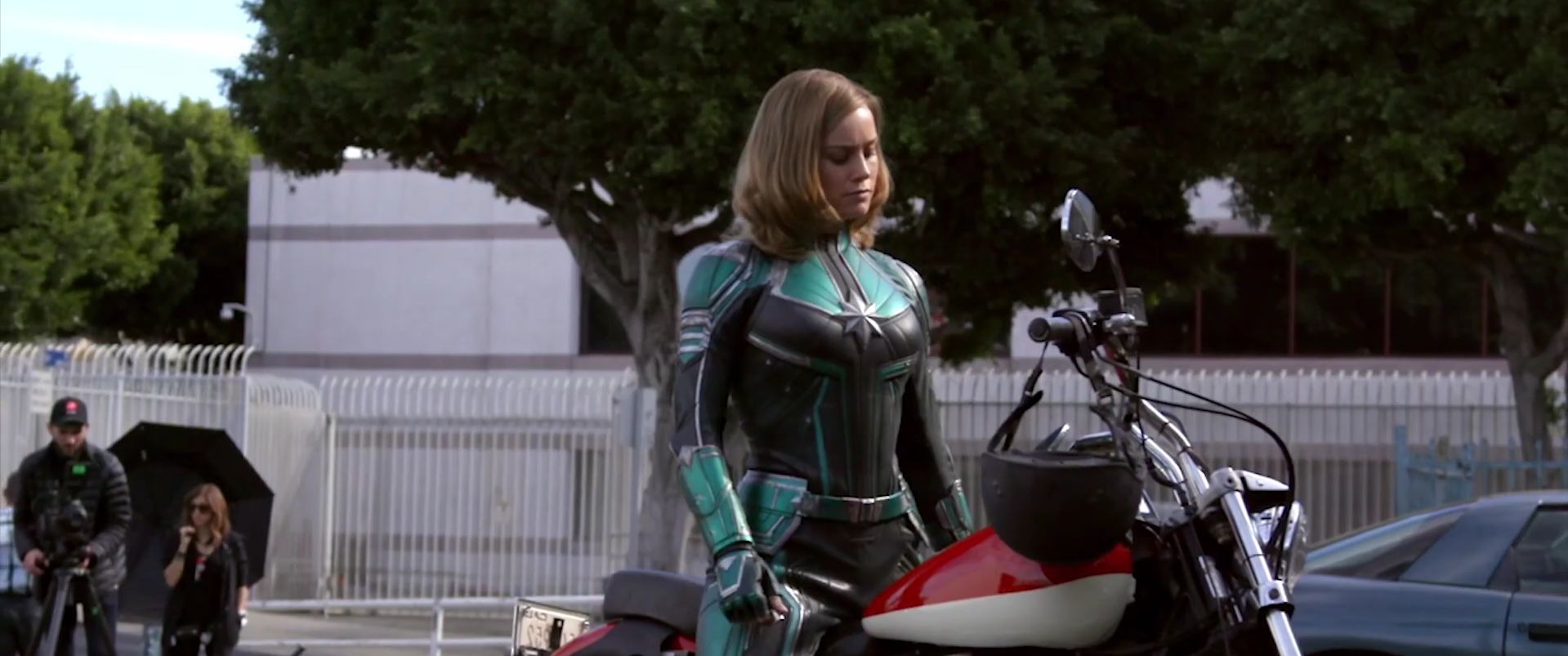
BTS Captain Marvel. Photo: Marvel
Whenever Danvers remembers pieces of her childhood, it’s her subconscious trying to remind her of who she is and that what’s happening is wrong.
Weirdly, there’s even more to the story, as the Supreme Intelligence takes on different appearances for each individual.
Danvers sees her as Mar-Vell, a brilliant Kree scientist who chose Earth as her home and worked with the United States Air Force to research the Tesseract.
Meanwhile, a Skrull named Talos pretends to be Fury’s S.H.I.E.L.D. boss, Keller. He works from within to bring down Danvers…until he doesn’t.
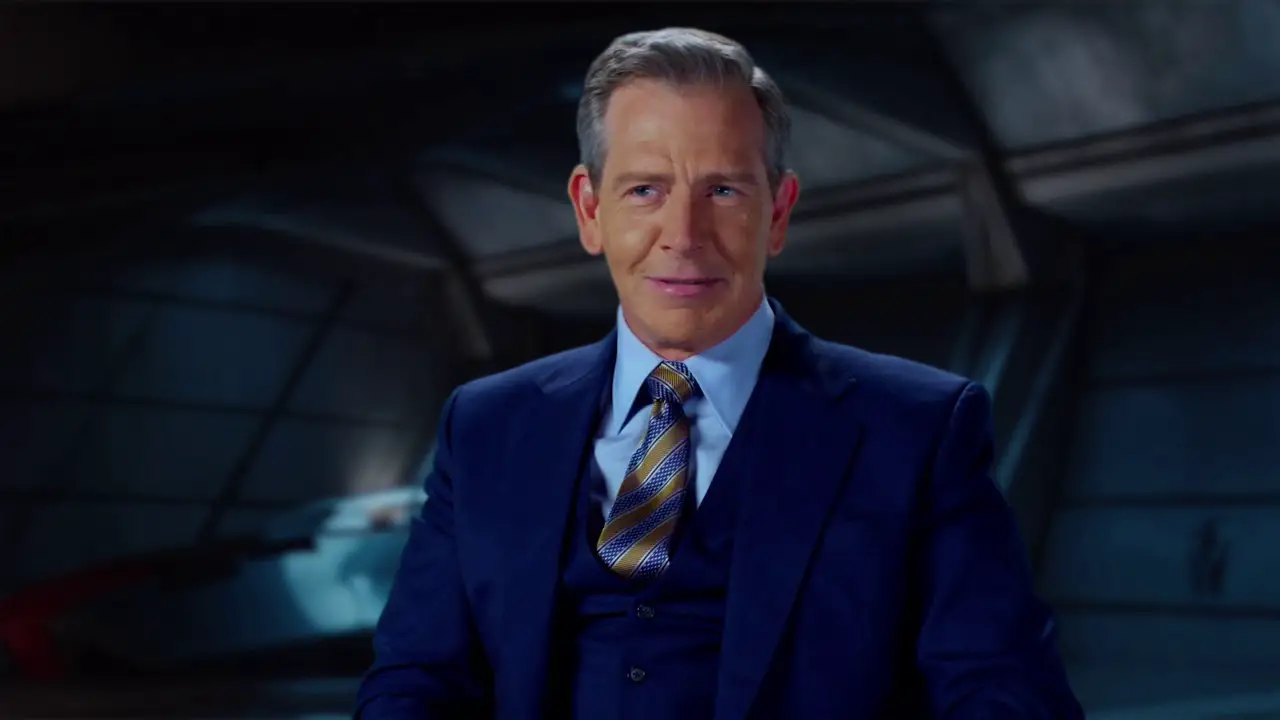
Photo: Marvel
I swear to you that I’m describing this as efficiently as I can. Still, the Byzantine nature of the story frustrates more than it succeeds.
Captain Marvel works best when Brie Larson gets to be a badass. She’s confident, vivacious, and as heroic as anyone we’ve ever seen in the MCU.
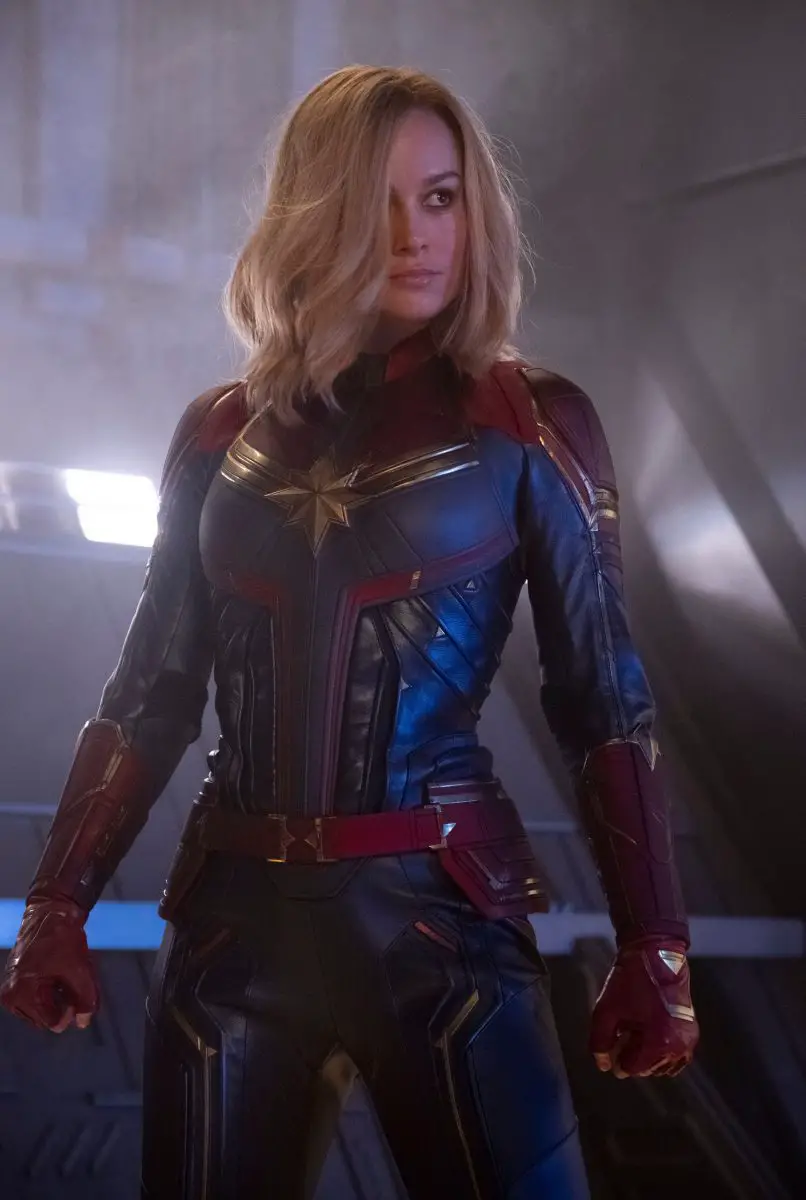
Photo: Disney/Marvel/Kobal/Shutterstock
Building a Superheroine
Oddly, the film lacks the conviction in Larson that it needs. To wit, the introduction of Maria Rambeau as her air force buddy feels tacked on at first.
Now, I’m not complaining because it leads to a brilliant moment between her young daughter, Monica Rambeau, and a youthful Skrull.
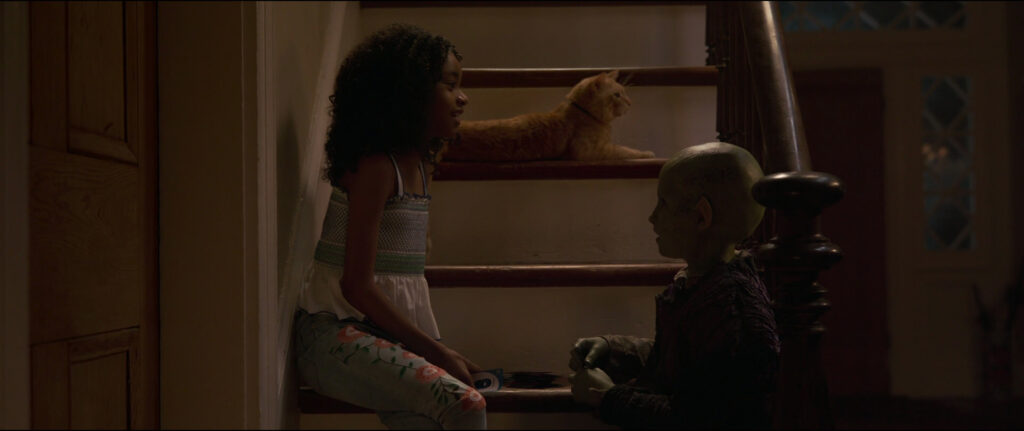
Photo: Marvel Studios
Also, Monica’s stories about her fond childhood memories of her mom’s cool friend, Carol, do make her seem like the incredible person Captain Marvel is.
So, it’s not all underwhelming, just a bit unwieldy. This film doesn’t quite have the confidence that the best MCU films do.
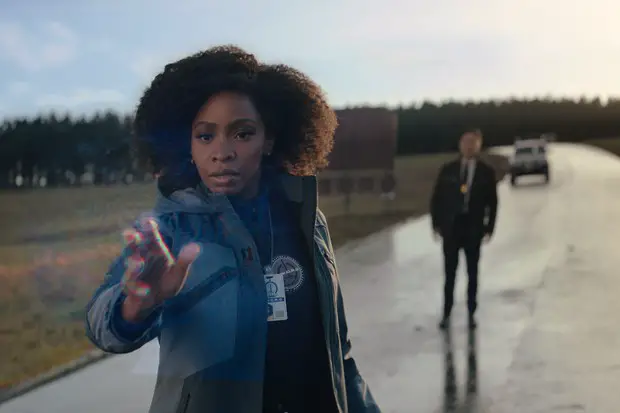
Photo: Marvel
The sum is less than the parts, which frustrates me since I love the comic book character and the actress playing her.
I realize that I’m coming across as negative here, which isn’t my intent. On opening weekend, I gave Captain Marvel an A-, and that still sounds about right.
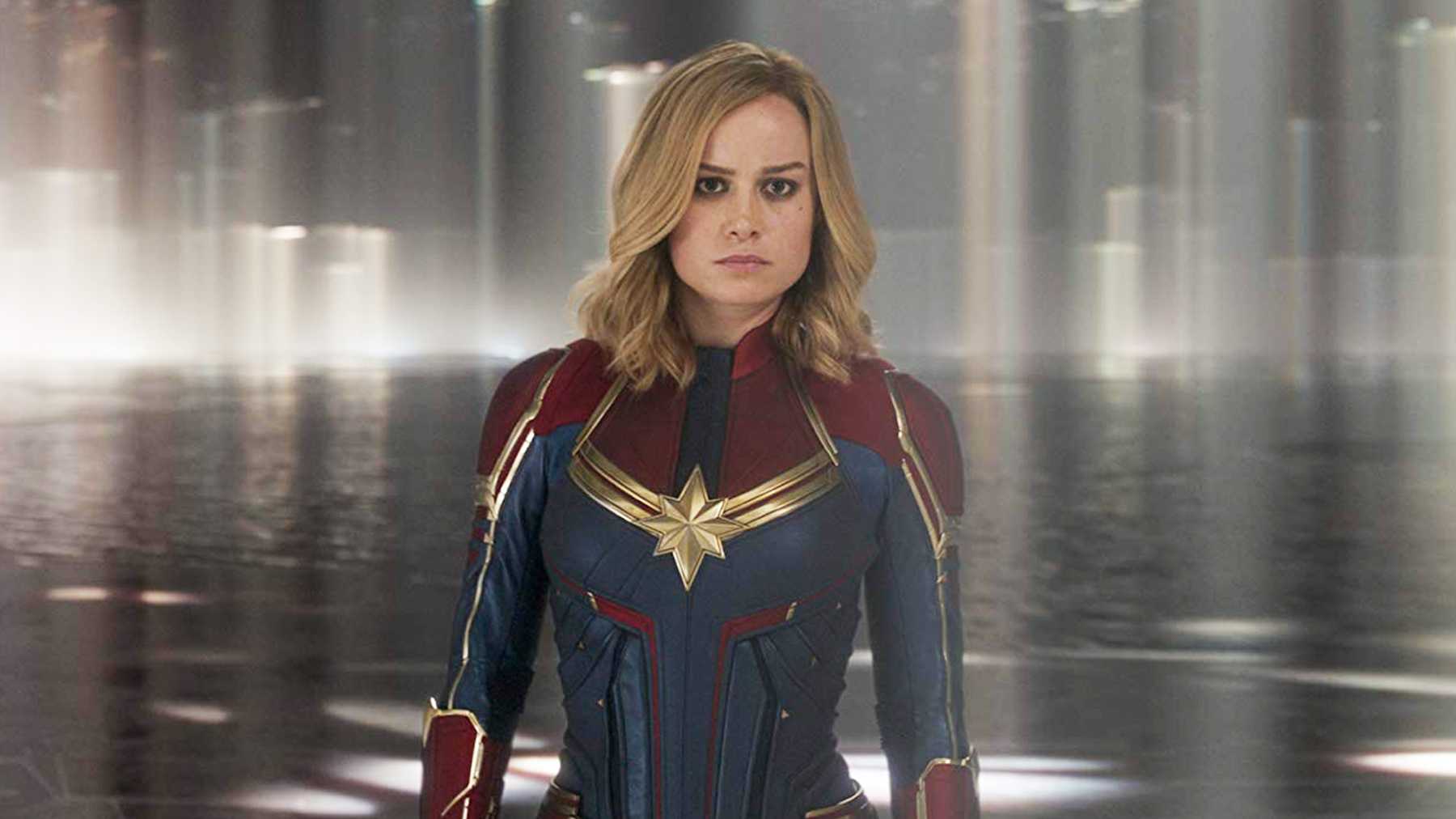
Captain Marvel. Photo: Marvel Studios
At the time, I said: “It’s definitely lesser Marvel.”
Then, I added, “Even as I nitpick in my head, however, I admire how much the film did right and how significant it is to young women and girls.”
I haven’t even touched on the best parts yet. The Flerken bits kill, and Carol’s willingness to give the Skrulls a chance is an ultimate superhero move.
The MCU has decided to reinvent the Skrulls as sympathetic figures rather than the Big Bads we’ve know from the Fantastic Four.
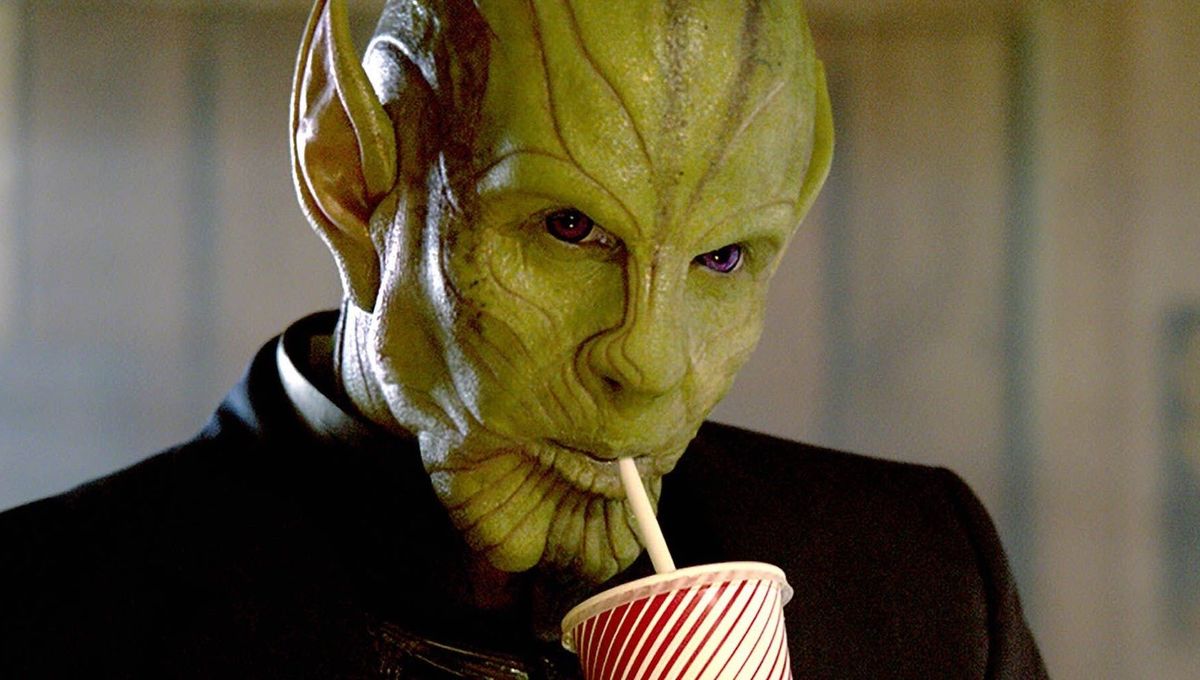
Photo: Marvel
Ben Mendelsohn excels as the alien stranger who investigates Danvers and then respects her that much more after vetting her.
Lashana Lynch doesn’t have enough to do in this film as Maria Rambeau, but she absolutely nails her lines when Carol Danvers states that she doesn’t know who she is.
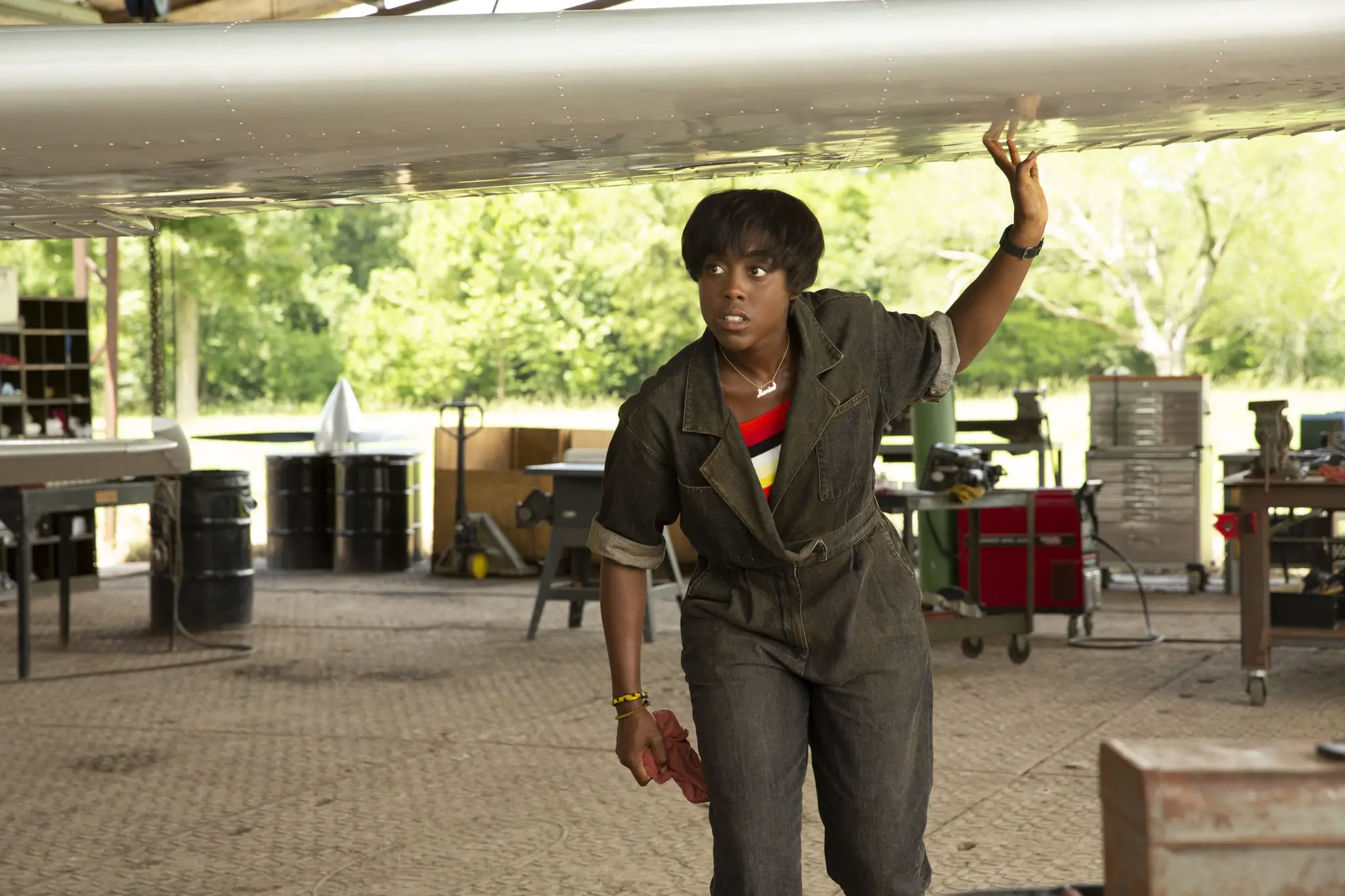
Photo: PopSugar
After a century, Hollywood still sucks at female friendships. To its credit, Captain Marvel nails its version.
Final Thoughts
For me, Captain Marvel doesn’t reach the upper echelons of the MCU because I’m a male writer who doesn’t like the script as much as others.
As such, the basis for my grading and criticism feels trivial compared to the overall significance of this project for women.
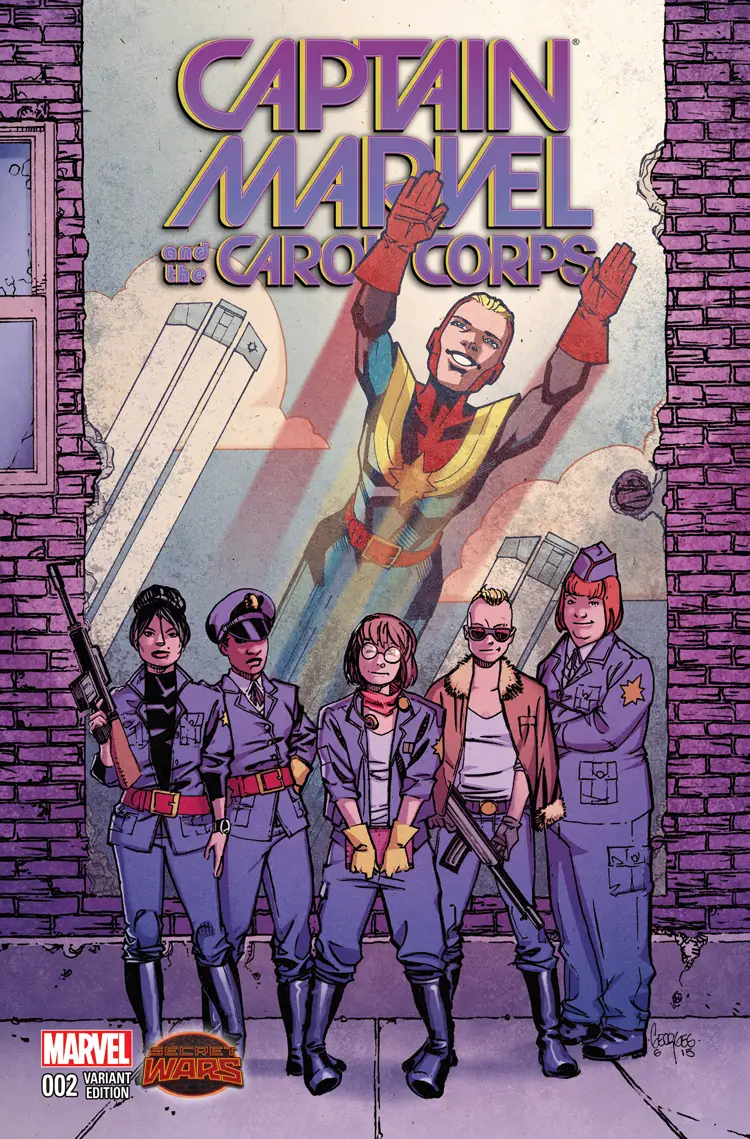
Meet the Carol Corps. Photo: Marvel
However, I treasure the impact of this film on society and welcome the ascension of Brie Larson into the upper stratosphere of Hollywood.
Plus, Captain Marvel’s origin story directly led to this moment in Avengers: Endgame:
Also, I have higher hopes for Captain Marvel 2, now known as The Marvels.
That film features a new director, Nia DaCosta, and the arrival of Carol Danvers’ number one fangirl, Kamala Khan.
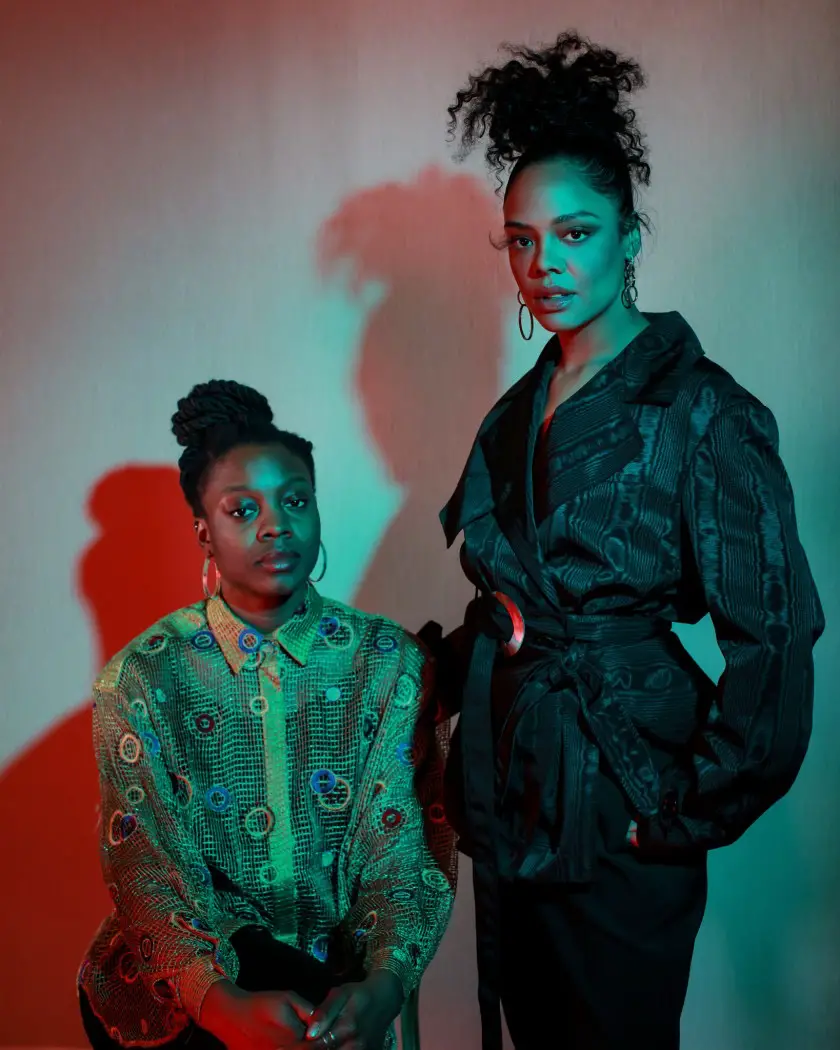
Nia DeCosta and Tessa Thompson. Photo: Marcus Yam/Los Angeles Times
I’m one of the few people who enjoyed the Guardians of the Galaxy sequel more than the original.
So, I expect the same thing to happen with the next Captain Marvel film.
Feature Image Rights: Marvel


